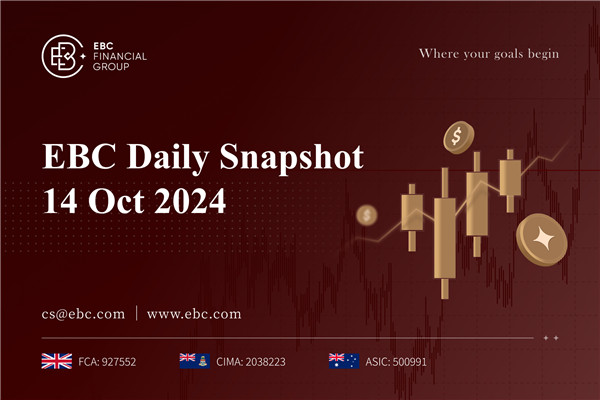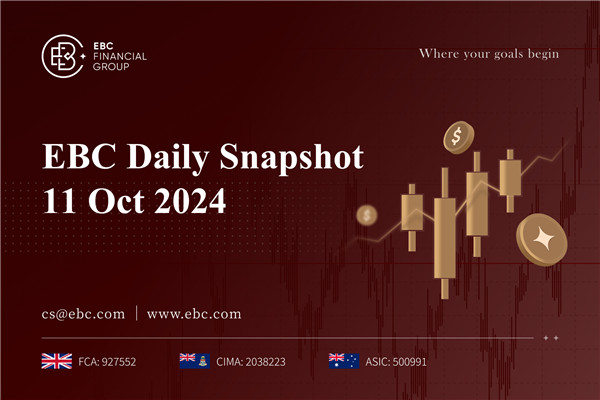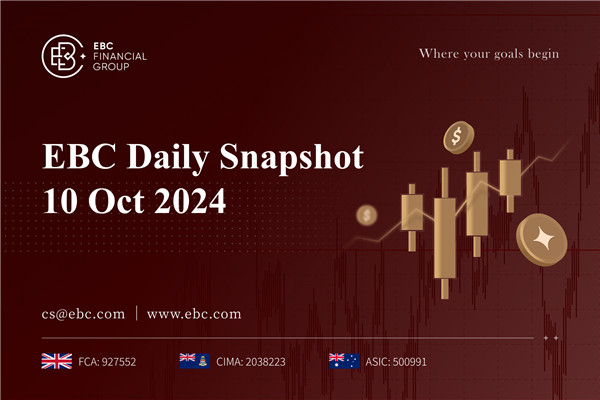The euro’s uptrend stalled in 2024, hanging near a one-month low against the
US dollar, as the outlook for the eurozone remains bleak relative to that of the
US and risk sentiment has turned sour.
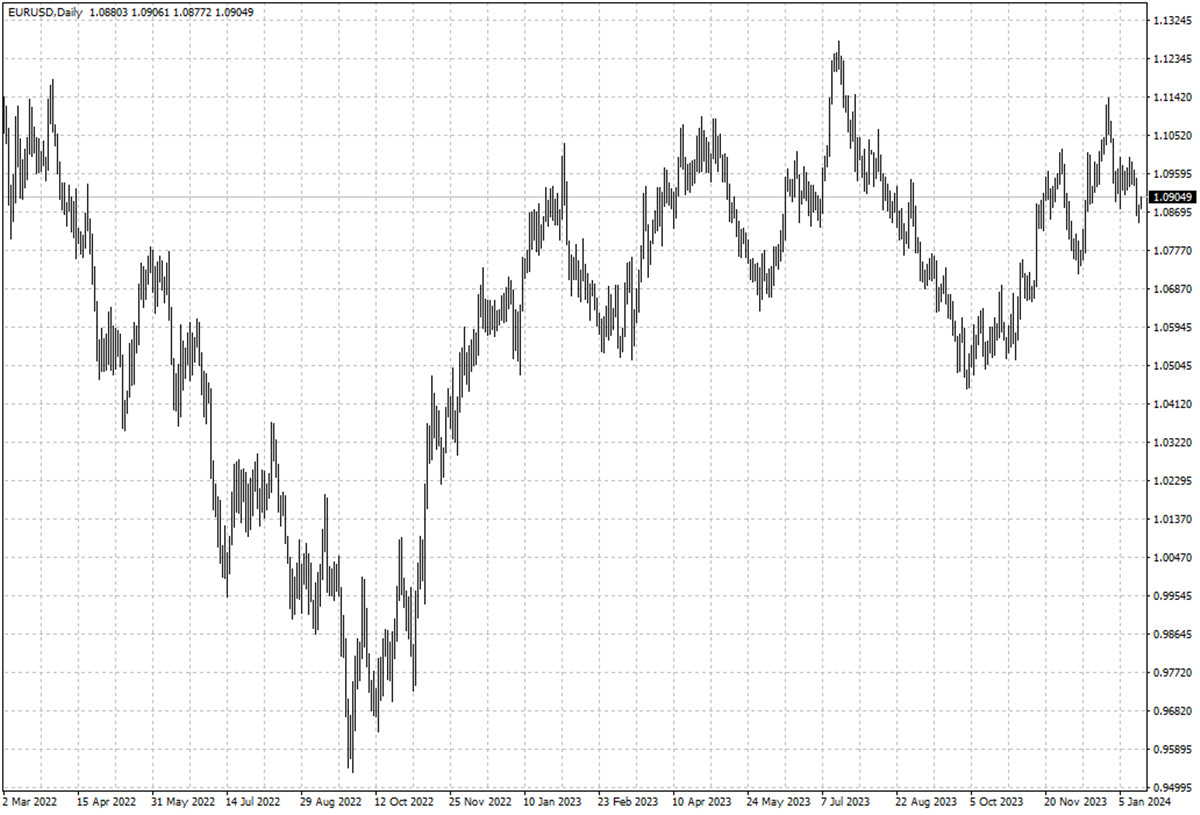
Economy looks set for another downturn in the last quarter, while a recent
pick-up in inflation is expected to persist in the coming months, according to
the central bank’s vice president.
"Positive energy base effects will kick in and energy-related compensatory
measures are set to expire, leading to a transitory pick-up in inflation," Luis
de Guindos said.
Annual inflation in Dec rose by 2.9% year-over-year, less than the 3%
expected, ending a seven-month decline streak. Meanwhile the contraction in euro
zone business activity continued at the end of 2023.
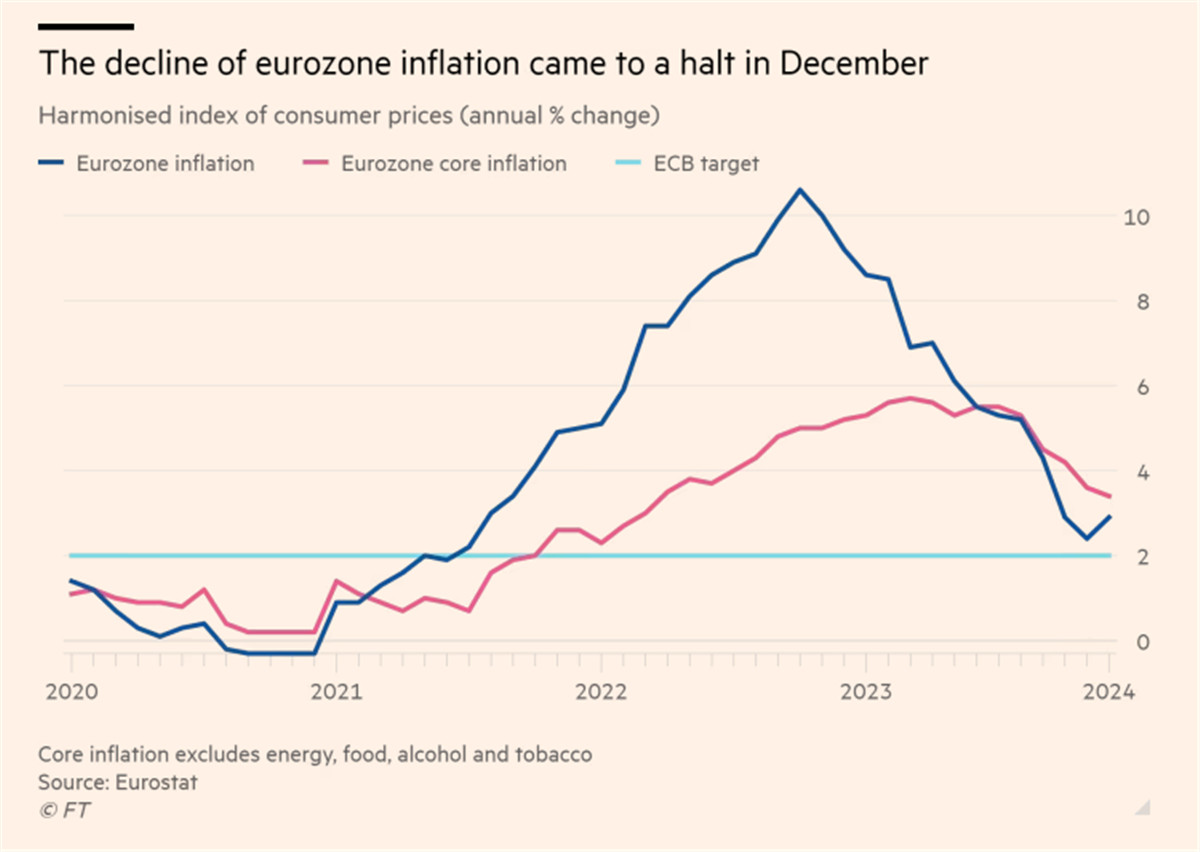
HCOB's Composite PMI remained below the 50 mark for a seventh month. Output
prices increased at their quickest pace since June, signalling it may be
premature to call end to inflation fight.
China, the EU’s largest trading partner, reported fourth-quarter GDP figures
slightly below expectations, bringing 2023 growth to 5.2%. Real estate risk is
lingering with the worst declines in new home prices in nearly nine years seen
last year.
Rate cut fantasy?
The ECB will lower interest rates four times this year as inflation retreats
more quickly than previously anticipated, according to a Bloomberg poll of
economists. The first one will most likely kick off in June.
Economists now expect price growth to cool to 2.3% this year and average 2.1%
in 2025. The central bank said last year’s dramatic slowdown could hardly
continue in 2024.
A recession in the second half 2023 will be followed by a gradual recovery
that may gather speed over the course of this year, the survey showed. The odds
are still against the gap narrowing between the US and the eurozone.
Investors have priced in 150-bp cuts by the end of the year, with a first
move in April fully priced in, but several policymakers have lately exhibited
hawkish tendencies when responding to that view.
Recent inflation data broadly confirmed assessment from the Dec’s meeting,
meaning interest rate cuts are not a near-term topic of debate, chief ECB
economist Philip Lane said on Friday.
Governing Council member Robert Holzmann said on Monday “everything we have
seen in recent weeks points in the opposite direction, so I may even foresee no
cut at all this year.”
He also flagged the “overlying problem” of geopolitical changes in the Middle
East, as the Israel-Hamas war has escalated to a regional war involving
Hezbollah and the Houthis.
Germany off track
Once a locomotive, Germany now has been the laggard of Europe. It was the
worst performing major economy last year, burdened by rising interest rates and
energy costs.
Advanced economies grew 1.5% on average in 2023 while German output
contracted 0.3%, highlighting the vulnerability of its manufacturing to the loss
of Russia’s gas and China’s demand.
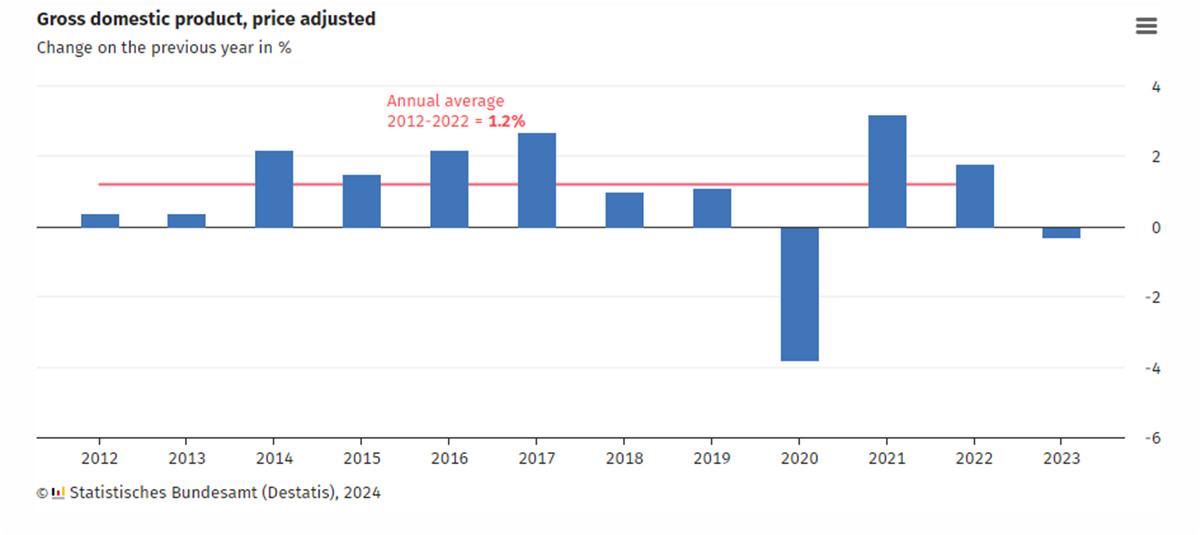
GDP was 0.7% higher in 2023 than in 2019. "It is worrying that the German
economy has hardly grown at all since the outbreak of coronavirus,"
Commerzbank's chief economist Joerg Kraemer said.
Growth in the country is expected to pick up to 0.6% this year – still one of
the world’s weakest large economies, according to the OECD. Some analysts say
the worst is yet to come.
Carsten Brzeski, the global head of macro research at the Dutch bank ING,
said: “There is no imminent rebound in sight and the economy looks set to go
through the first two-year recession since the early 2000s.
German insolvencies are expected to rise between 10% - 30% this year and
exceed pre-pandemic levels. Only 52% companies could be saved through insolvency
at the end of last year, according to data from Falkensteg.
The government reached a deal last month to have €17 billion cut from the
overall budget and leave the debt brake untouched, which could not have come at
a worse time.
Disclaimer: This material is for general information purposes only and is not
intended as (and should not be considered to be) financial, investment or other
advice on which reliance should be placed. No opinion given in the material
constitutes a recommendation by EBC or the author that any particular
investment, security, transaction or investment strategy is suitable for any
specific person.





